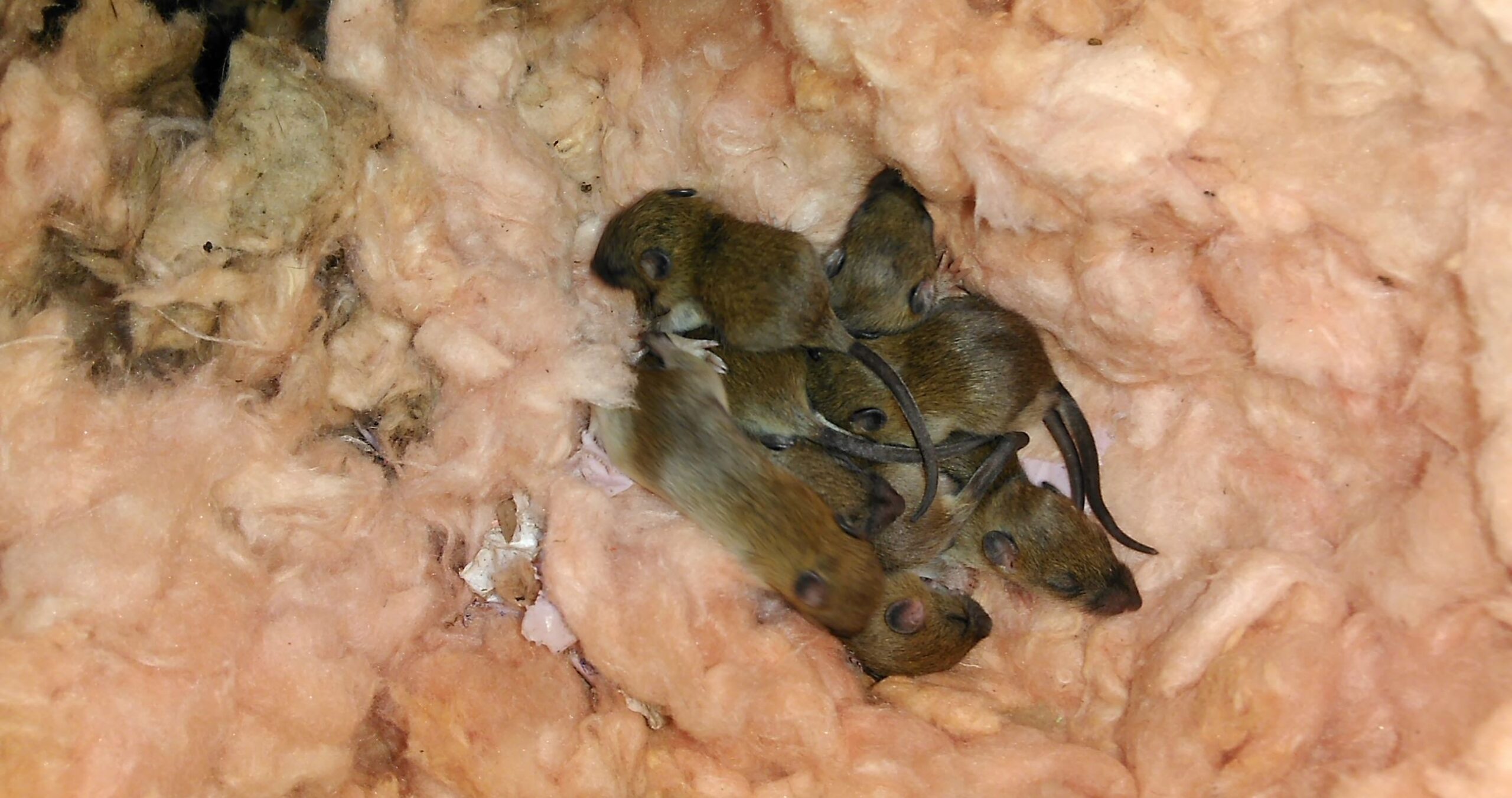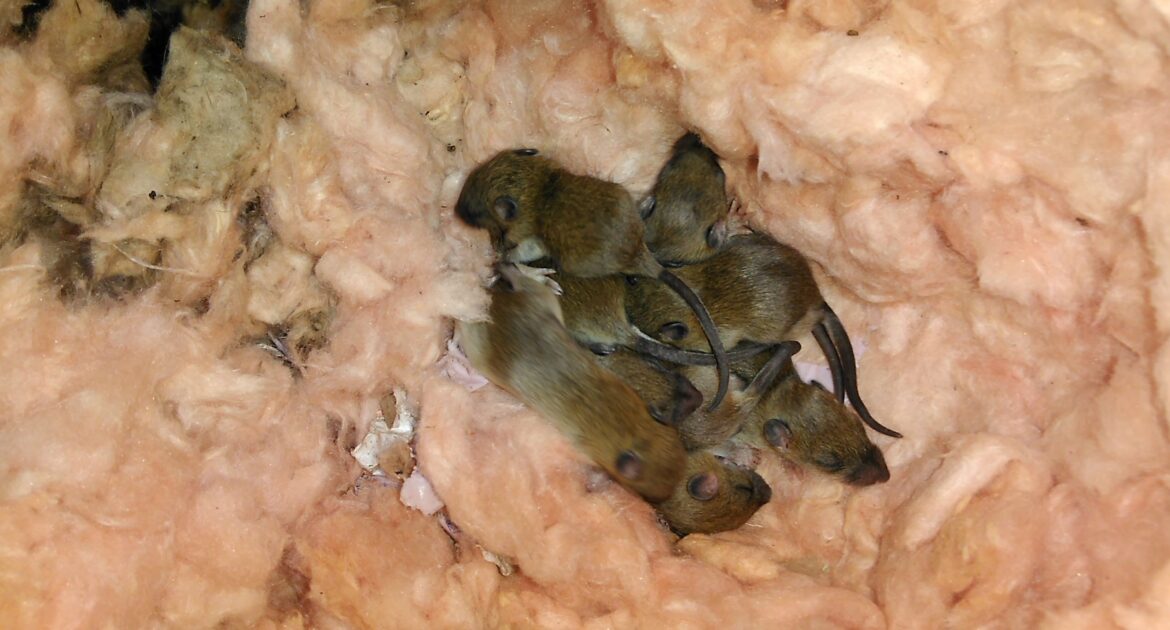If you’re trying to identify rodent droppings and damage in your home, you’re not alone. Spotting the signs of rodent infestation early can help prevent costly repairs and keep your home safe for you and your family. From damaged electrical wiring to contaminated food supplies, the risks associated with rodents are plentiful.
Here in Denver, where urban sprawl meets the Rocky Mountain wilderness, homes are particularly susceptible to rodent damage. Knowing how to detect signs of infestation early is critical to protecting your property and health.
Identify Rodent Droppings and Damage
One of the first signs most homeowners notice when dealing with rodents is their droppings. These small, cylindrical wastes are often found in kitchen cabinets, pantries, or along baseboards. Identifying the type of droppings can help you determine whether you’re dealing with mice or rats. For instance, mouse droppings are smaller (about 1/8 inch long with tapered ends) compared to rat droppings, which are larger and blunt at both ends.
But droppings aren’t the only sign to look for. Rodent damage is another major clue and often includes the following indicators:
- Chewed Electrical Wires: Rodents gnaw on wires, posing a serious fire hazard.
- Holes in Drywall or Baseboards: Look for small holes, especially in low-traffic areas of your home.
- Gnawed Food Packaging: Check for bite marks or torn materials in your pantry.
- Greasy Smears Along Walls: Rodents often leave greasy marks from their fur as they travel along baseboards.
- Discarded Nesting Materials: Watch for shredded paper, fabric, or insulation in secluded areas.
Being vigilant and identifying these signs early can make a world of difference in addressing an infestation before it worsens.
Signs of Rodent Infestation
Knowing the broader signs of rodent infestation can save you a lot of headaches. While droppings and damage are obvious indicators, there are additional signs to watch for, including odours and sounds that often signal unwanted visitors.
Noises During the Night
Rodents are nocturnal, meaning they’re most active after sunset. If you hear scratching or squeaking noises in your walls, ceilings, or under your floorboards, it’s a good indicator that rodents are inhabiting your home. For Denver residents, the combination of old homes and cold winters often pushes rodents inside for warmth.
Distinct Odors
A heavy, musky odour in your home may also point to the presence of rodents. This smell is caused by their urine and droppings, which can also worsen your indoor air quality over time. If you’ve noticed this smell but haven’t seen other signs yet, it’s time to start looking in hard-to-reach areas like attics and crawl spaces.
Tracks and Marks
Check dusty or undisturbed surfaces for tracks or tail marks. You might also notice smudges where rodents touch walls as they move through their familiar paths. Use a flashlight to check these areas thoroughly.
Remember, rodent infestations grow quickly. A small issue can escalate into a larger one as rodents reproduce rapidly. If you spot even a single sign of a rodent infestation, act quickly to protect your home.
Rodent Damage in Your Home
The damage rodents can do to your home is significant—and costly. These animals can cause structural issues, spoil food, and compromise your family’s safety. One of the most concerning aspects of rodent damage is their impact on electrical systems.
Key Types of Damage
- Electrical Risks
Rats and mice chew through electrical wires, leaving your home vulnerable to shortages or fires. It’s one of the most dangerous aspects of an unchecked infestation.
- Plumbing Problems
Rodents have been known to chew on PEX pipes, dishwasher lines, and other plumbing materials in search of water. Over time, this can lead to leaks and costly water damage.
- Damaged Insulation
Rats and mice love to burrow in insulation, tearing it apart for nesting. This impacts the energy efficiency of your home and may lead to higher utility bills.
- Food Contamination
Any food left accessible—even in seemingly secure packaging—is at risk. Rodents can chew through plastic, cardboard, and even aluminum to get to their food source. This contamination is not only wasteful but poses a significant health risk.
- Structural Issues
From gnawed baseboards to shredded drywall, rodent damage compromises the integrity of your home. If left unchecked, these issues could lead to costly repairs.
Denver’s unique mix of urban and natural environments makes homes here particularly appealing to rodents. Staying proactive is vital to avoid these types of damage.
Signs of Rodent Infestation in Denver
Living in Denver comes with its specific set of challenges when dealing with rodents. Our proximity to nature combined with bustling neighbourhoods often creates the perfect conditions for infestations. Certain signs are particularly prevalent in this area.
Outdoor Activity
Keep an eye on your yard, especially around the base of your home or garage. Rodents often leave burrows or paths that can indicate an infestation before they even enter your home.
Seasonal Patterns
During Denver’s colder months, rodents are drawn indoors to escape the freezing temperatures. Be extra cautious during late fall and winter, as this is when most infestations occur.
Common Entry Points
Rodents in Denver frequently use small gaps around doors, vents, and plumbing pipes to squeeze into homes. Pay particular attention to your basement, crawl spaces, and rooflines, as these areas are vulnerable.
By understanding the specific challenges facing Denver homeowners, you can better protect your property and address potential issues proactively.
Choose Skedaddle for Rodent Control in Denver
At Skedaddle Humane Wildlife Control, we specialize in providing reliable, professional, and humane solutions to address wildlife and rodent intrusions. Our comprehensive range of services is tailored to meet the unique challenges faced by Denver homeowners, ensuring that we not only remove unwelcome wildlife but also protect your property from future infestations.
Inspection and Assessment
Our process begins with a thorough inspection of your home. Our trained technicians identify potential entry points, damage caused by wildlife, and the type of animal present. This detailed assessment allows us to develop a customized plan designed to resolve your specific situation effectively.
Humane Wildlife Removal
Skedaddle’s approach prioritizes the well-being of both homeowners and the animals. Our humane techniques ensure that wildlife is removed safely and without harm. We also take precautions to prevent the separation of mother animals from their young, reducing stress and ensuring complete humane handling.
Exclusion and Prevention
Once the wildlife has been removed, our team focuses on securing your home against future infestations. Using industry-leading materials and techniques, we seal entry points and reinforce vulnerable areas such as vents, soffits, and rooflines. This proactive approach ensures long-term protection for your property.
Cleanup and Restoration
Wildlife intrusions can leave behind mess, odours, and even health risks. Our cleanup and restoration services include sanitizing affected areas, removing contaminated materials, and repairing damage caused during the intrusion. These steps ensure your home is safe, clean, and restored to its original condition.
At Skedaddle, we are committed to delivering exceptional service with a focus on customer satisfaction and humane practices. With decades of experience, innovative methods, and a deep understanding of the challenges Denver residents face, we aim to provide peace of mind and long-term solutions for your home.
Next Steps for Protecting Your Home
Now that you know what to look for, it’s time to take action. Regularly inspect your home for droppings and damage, paying close attention to hard-to-reach areas like attics and basements. Seal entry points to prevent rodents from gaining access and store food securely.
If you find signs of an infestation, it’s always best to act quickly. At Skedaddle, we specialize in humane and effective solutions tailored to Denver’s challenges. With decades of experience, we know exactly how to remove rodents safely, repair the damage they’ve caused, and keep them from returning.
Don’t wait until a small issue becomes a big problem. Take proactive measures today to protect your home and family.




